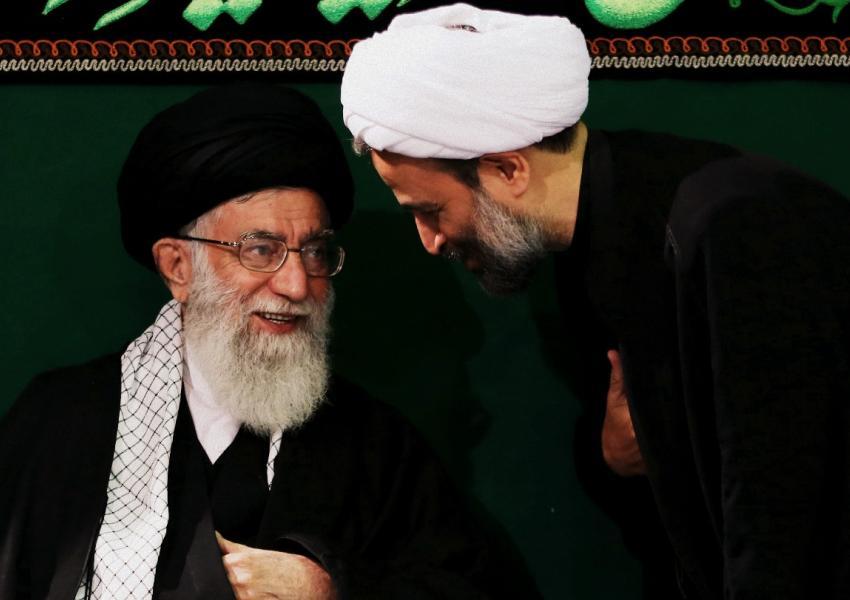
Journalist In Iran Exposes Corruption Of Khamenei's Favorite Preacher
An Iranian journalist has revealed a second document suggesting that a favorite preacher of Iran's Supreme Leader Ali Khamenei used his influence to purchase real estate at a fraction of the market price.
Yashar Soltani, a prominent reformist journalist and whistleblower, on Tuesday published a document on his Telegram channel that reveals eight years ago Alireza Panahian, a preacher very close to Khamenei, bought a piece of land in an upscale residential area of Tehran for a fraction of its real price from a member of an exiled family. Soltani asked Panahian to explain how and why the family who left Iran soon after the Revolution of 1979 could sell the land to him at such a low price.
The allegations of corruption against Panahian have raised great public sensation because the 55-year-old cleric had always preached "simplicity of life based on Islamic teachings" as a model to be followed by the public. However, in recent years he has changed his course and, in his sermons, preaches working to acquire wealth and power to be able to assist the Hidden Imam of Shiites at the time of his reappearance. "Inheritance means power," he said in a sermon delivered to young hardliners last summer in Mashhad and encouraged them to study in fields related to economy and management.
Soltani has published an image of the transfer deed for the land purchased by Panahian on his channel. The questions that he has addressed to Panahian suggest that the cleric used his influence to buy a property – at a fraction of the price -- which otherwise could not have been sold due to legal impediments. According to Soltani the property was sold to Panahian by a member of an expat family.
In most cases the belongings left behind by those who fled, including members of the deposed royal family and their associates as well as big landowners and capitalists, were confiscated by the state and transferred to the Mostazafan Foundation (Foundation for the Oppressed). The foundation which was established by the order of the Leader of the Islamic Revolution Ayatollah Khomeini has now turned into a multi-billion-dollar conglomerate under Khamenei's direct control. It is now the country's largest real estate and agricultural landowner and the second-largest economic entity after the National Iranian Oil Company.
In some cases, in recent years some exiled families have been able to sell the properties they abandoned for decades through intermediaries, unable to safely return to the country.
Soltani in an earlier revelation of other assets owned by Panahian had asked him to explain how he has acquired his wealth, including his shares in Tak Makaron, one of Iran's leading food companies, as well as a real estate development in one Tehran's most expensive areas. He also published deeds and documents to prove Panahian's possession of these assets.
Panahian's response to the whistleblower's first attack was claiming that he only owned a luxury apartment which had been "gifted" to him by his "friends". He even claimed that like the founder of the Islamic Republic Ayatollah Khomeini and his successor, the current Ali Khamenei, he lives by the "charity of friends".
This inevitably raises the question of corruption by way of receiving property in exchange for influence peddling.
Alireza Panahian is one of Khamenei's former seminary students. He served in the IRGC during the Iran-Iraq War (1980-1988) where he mainly conducted religious propaganda. Panahian is the founder of a seminary in Tehran. Since then he has come to wield great political influence due to his close personal relations with Khamenei and his alliance with hardliner groups close to the Supreme Leader.
Soltani who has been arrested several times for whistleblowing in the past has taken great risk in exposing the corruption of an individual so close to Khamenei's inner circle. In 2016, he was arrested for exposing corruption by the mayor of Tehran, Mohammad-Bagher Ghalibaf who is now the speaker of the parliament. In January 2020, a court sentenced him to five years in prison, a three-year ban on membership in political parties and groups as well as any media or social media activity.



